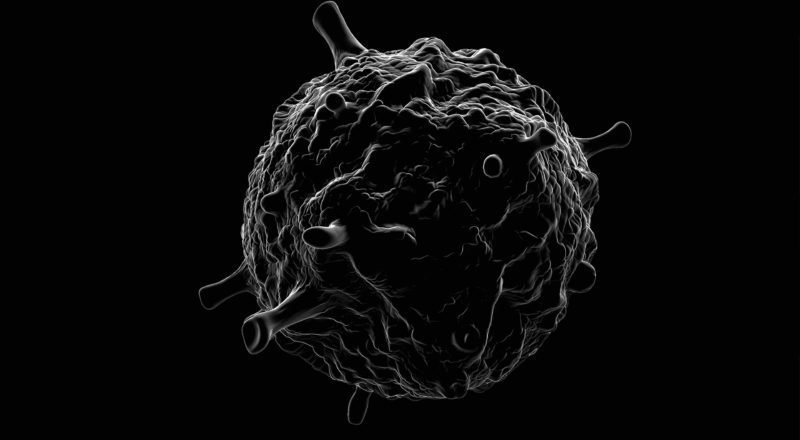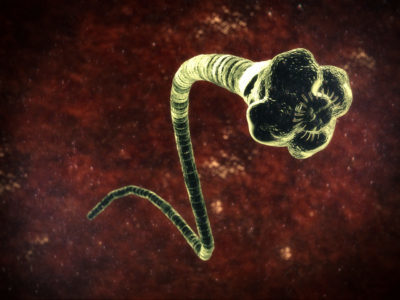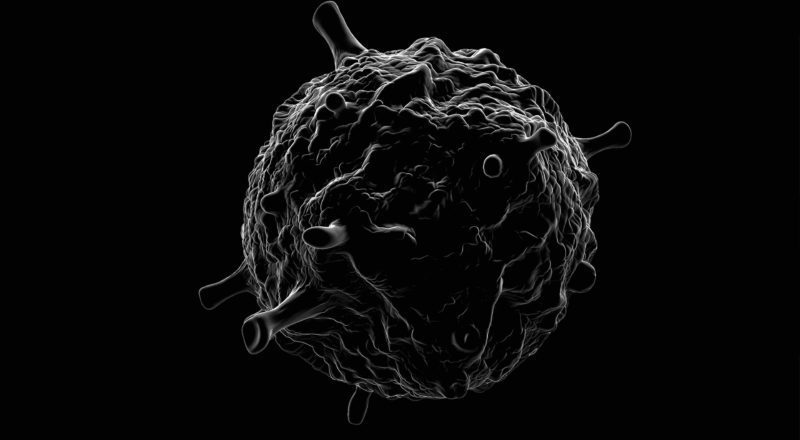INTERVIEW: A lesson in evolutionary biology from Dan Riskin of ‘Monsters Inside Me’

Monsters Inside Me, the successful Animal Planet series about parasites that affect humans, has cornered the market on disgusting reality television. Their episode titles should offer audiences an idea of their cautionary tales: “The Organ Shredder,” “I Can’t Stop Coughing Blood” and “Something Is Eating My Baby.”
Subtlety is not their strong suit, but unlike other reality programming, Monsters Inside Me is steeped in science and actual case studies. And their success is rare in a crowded TV marketplace; the series is currently in its eighth season.
At the center of the show, which premieres new episodes Sundays at 9 p.m., is host and biologist Dr. Dan Riskin.
“I feel like I know the territory at this stage,” Riskin said in a recent phone interview. “There are only so many parasites a person can get, and we’ve covered them. We recycled a couple parasites a few times — I mean, different stories, just as exciting — but sometimes you have to go back to the tapeworm well, so to speak. But this season there is this new worm, this roundworm. It’s not new to science; it’s just new to me, and we haven’t had it on the show before. And I had no idea it existed. It’s this roundworm that specializes on going inside your mouth and being just under the skin of your mouth, so it gets in your lip. And then it migrates and moves to the inside of your cheek, and then it’s under the roof of your mouth. And this poor guy got this thing, just could feel that something was not right. It was moving around, and he was showing the doctor. And nobody could figure out what it was with good reason because there are only, I believe, the number is 15 reported cases in the history of the United States. It is a super, super rare parasite.”
On occasion, Riskin and the team at Monsters Inside Me will hear from audience members who have been helped by the show’s content. The viewers will see an episode dealing with some virus or parasite, and they will seek medical help. However, the opposite effect also takes place.
“There are a lot of people who have things that aren’t parasites, but they become absolutely convinced that they do have a parasite,” he said. “I think our show can sometimes maybe not be as helpful for the interaction they’re having with the medical community. When a doctor says you don’t have a parasite, and they think, I know it from TV. That can be a difficult situation.”

Still, many medical professionals watch Monsters Inside Me, and perhaps they are attracted by the sense of discovery that occurs during the diagnosis phase. When a case study is presented, there are usually many questions that arise, and no clear answers exist.
“You’ve got to find the right one,” Riskin said. “They’ve got a process of elimination to figure out what it is, but it can take a long time. And sometimes you’re racing against the clock, and so it can be very, very difficult to figure out what it is. I think that it doesn’t matter if you’re the patient or the doctor or a family member, you just want to find out what it is. I think what’s nice about this show is that it shows what some of those rarer options are on the branching tree of possibilities, and that can be exciting.”
In telling the stories of these sick individuals, Riskin and the team try not to take advantage of the people’s sense of privacy. He recognizes that they are kind enough to share their stories, and he wants to be a respectful caregiver of their tale.
“We try not to make them look bad,” he said. “We try to tell the story in a way that shows sympathy for what they went through. We’re not cheering for the parasites by any stretch of the imagination, but we are in awe of them. We respect them, and so what we try to do is just tell the story as matter of factly as possible.”

When telling the stories of these patients, the “disgusting” factor is obvious. Some of these cases are nauseating because the symptoms are so squirm-inducing.
Riskin admitted that the show has its fair share of disgusting graphics and unsettling details. However, the tales match the reality. “These parasites really are disgusting, and I think that’s part of what makes our show so successful,” he said. “So I’m an evolutionary biologist, so I love to think about these things. Why would a human brain be drawn to our show when it’s so disgusting? And there’s a nice answer in evolutionary biology, and that is the human brain evolved to pay attention to things that were seriously dangerous. The human brain pays a lot of attention to predators. If you are in the woods and you see a bear or a tiger, whatever, you’re going to freak out, and that’s with good reason. Your body is built to know that predators are bad. Similarly if you’re in a workplace, and there’s a power dynamic taking a hold, and there’s some gossip, your brain is absolutely attuned to pay attention to that because the outcome of those interpersonal relationships is hugely important to how you’re going to do in that office and how you’re going to do in life.”
Parasites, Riskin said, are enormously important from a human evolutionary perspective, but sometimes, when living in a country that doesn’t face too many of these microscopic killers, the particulars are unknown.
“Living in North America, we sort of live in this bubble where we don’t have to worry about parasites because our food is so clean,” he said. “It’s prepared well. We have good sanitation, but through our evolution as humans, parasites have been a major, major cause of death, by far a more dangerous thing than predators. We’ve been killed by many more bacteria than we’ve been killed by bears, by orders of magnitude, and so when you see something disgusting, you have a response that is your whole evolutionary soul telling you to be careful, to beware. And so it absolutely makes adrenaline go through your blood. It makes your whole brain light up. It makes you react in a visceral way, and so I think that rush, that emotional feeling is what makes our show work so well.”
By John Soltes / Publisher / John@HollywoodSoapbox.com
Monsters Inside Me continues with new episodes Sundays at 9 p.m. on Animal Planet. Click here for more information.

